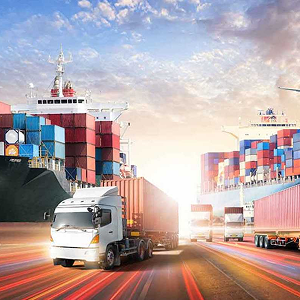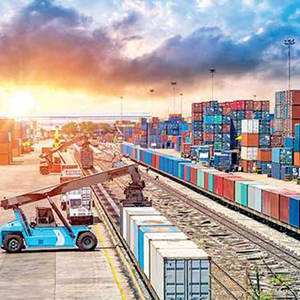Since the production of some specific products is not possible in some countries or their production is not economical, these countries must use imported goods in order to meet their needs. Import of goods is the importation of goods produced in one country to another country in a commercial way. The needs of each country are determined annually by trade policymakers and by applying policies such as tariffs. Having sufficient knowledge and mastery of international trade laws for the import of goods is a significant issue that IEC Trading Company can be a reliable guide and companion for you in this field.
Import Company
Generally, all the goods that enter the country by air, land or sea are called imported goods. The necessity of importing in each country is determined based on the conditions of that country. These conditions can include the weather conditions of the country. For instance, the countries with mild and cold weather are unable to grow and produce tropical plants and fruits, and in order to supply these fruits and plants, they must be imported from other countries. Types of agricultural land, the existence of human resources such as laborers, experts, etc. are also considered as other factors which affect imports.
Carrying out business affairs always requires obtaining detailed information about the laws, since the laws and regulations in the field of importing goods are usually updated and changed according to the needs of the country and various conditions. An import company must be fully aware of all the laws and regulations of importing goods into the country. In order to import goods to the country, you must have complete information on issues such as trade, international transportation, international banking, customs affairs, clearance of goods and how to allocate currency and other related matters. Having sufficient mastery of the laws of importing goods into the country is the skill and expertise of commercial service companies. IEC Trading Group, with 24 years of experience in this field, provides the business services you need.
Imports of Goods Steps
Part of the process of importing goods is done inside and another part is done outside the country, which has its own complexities and conditions. In fact, the import of goods includes many steps that can be divided into two general steps. The first step is buying and sending goods, which includes the following steps:
Correspondence and price request
Request product information such as catalog and seller profile
Negotiation with the seller
Examining the supplier company
Concluding the order and obtaining an invoice or proforma
Payment
Quantitative and qualitative inspection of goods
Choosing the method of transporting goods
Loading
The second stage is the clearance of goods, which includes:
Order registration
Obtaining the required permits
Obtaining declaration of entry of goods to customs
Paying fees such as customs duties
Receiving goods
Obtaining a commercial card
The first step in the import process is to obtain a commercial card for beginner traders. This card is issued by the Ministry of Security and the Chamber of Commerce and has various types such as business card, industrial card, etc.
Choosing the field of activity
The field of activity can be selected and determined in several ways. Some people only work with one specific country and import various types of goods from the same country. But some others work in the field of importing special goods from different parts of the world.
Familiarity with the latest rules and regulations
Importers must be fully familiar with the laws, directives and also various points in the field of importing goods. For instance, they should be aware of the prohibition of importing certain goods, changes in the import tariff, or restrictions on trade with a specific country.
Another significant point that we should mention in this regard is preventing the deposition of goods in the country’s customs. This issue is important because before the goods reach the customs, things suchas order registration, currency allocation, etc. must be done and in order to quickly clear the goods and not be subject to paying additional fees, the relevant permits must be obtained immediately. To prevent this problem, you must be in contact with your business advisors with the purpose of carrying out things related to the clearance of your goods as soon as possible.
Choosing the country and imported goods
At this stage, you have to negotiate with different customers from different countries. Therefore, it is necessary to be familiar with the commercial laws of those countries. Also note that in addition to checking the price and quality of the product, it will be necessary to check the technical specifications of the product, determine the number of products and its type.
Request to send proforma
After completing the initial agreements, you must ask the seller to send an invoice or proforma to purchase goods. Proforma preparation is one of the main processes in the import of goods, and the necessary information must be written in it in an accurate and complete manner, because it is also used to register an order, and you must ask to register an order based on this document. The information that must be included in the proforma are:
Price of goods
Cost of transporting goods
Number of goods
Country of origin and destination
Currency type of goods transaction
Buyer and seller specifications
Order registration
At the order registration stage, the importer of the goods must register his request for the import of the desired goods through the order registration system. Ordering different products has various steps. In some cases, in order to import a specific product, in addition to the main licenses, it will be necessary to obtain licenses from other related agencies.
Currency allocation and international payment
There are several ways to prepare currency, which includes the following:
Preferential or government currency: The government allocates government currency to a number of basic goods such as food and medicine.
Nimai currency: As a result of the currency crisis, the government launched the Nima system to allocate currency, so that importers can obtain currency to import non-essential goods through this system. Exchanges, banks and documentary draft bill are also among other cases in this field.
Transportation and insurance of goods
Goods are transported in different ways. The buyer and the seller choose a transportation method through the international rules of Incoterms. In each of these rules, the risk of the transaction is different for the buyer and the seller, and to insure the desired goods, they sign a contract with an insurance company, for which the insurance fee must be paid.
Import cost
The cost of importing goods will usually be as follows:
The cost of purchasing the product itself
Quality inspection
Transportation services
Freight insurance
Cost of goods inspection
Cost of storage
Customs fees
Good clearance from customs
When all the steps of importing goods are done correctly, the desired goods will arrive at the customs of the destination country and the importer must submit the goods documents to the customs by his representative to clear the goods after going through various steps and paying the necessary fees. Customs clearance is one of the most important steps in the process of importing goods, which importers usually leave the import issues to the official customs agents.
Import with IEC Trading Group
One of the advantages of cooper
action with IEC Trading Group for traders is that our experts with sufficient knowledge and expertise on import issues will easily carry out all related affairs and obtain the necessary permits. The various steps which set in IEC Trading Group to carry out import related matters are highly systematic and organized. Our main concern is saving your time and reducing your costs to do a profitable business.









